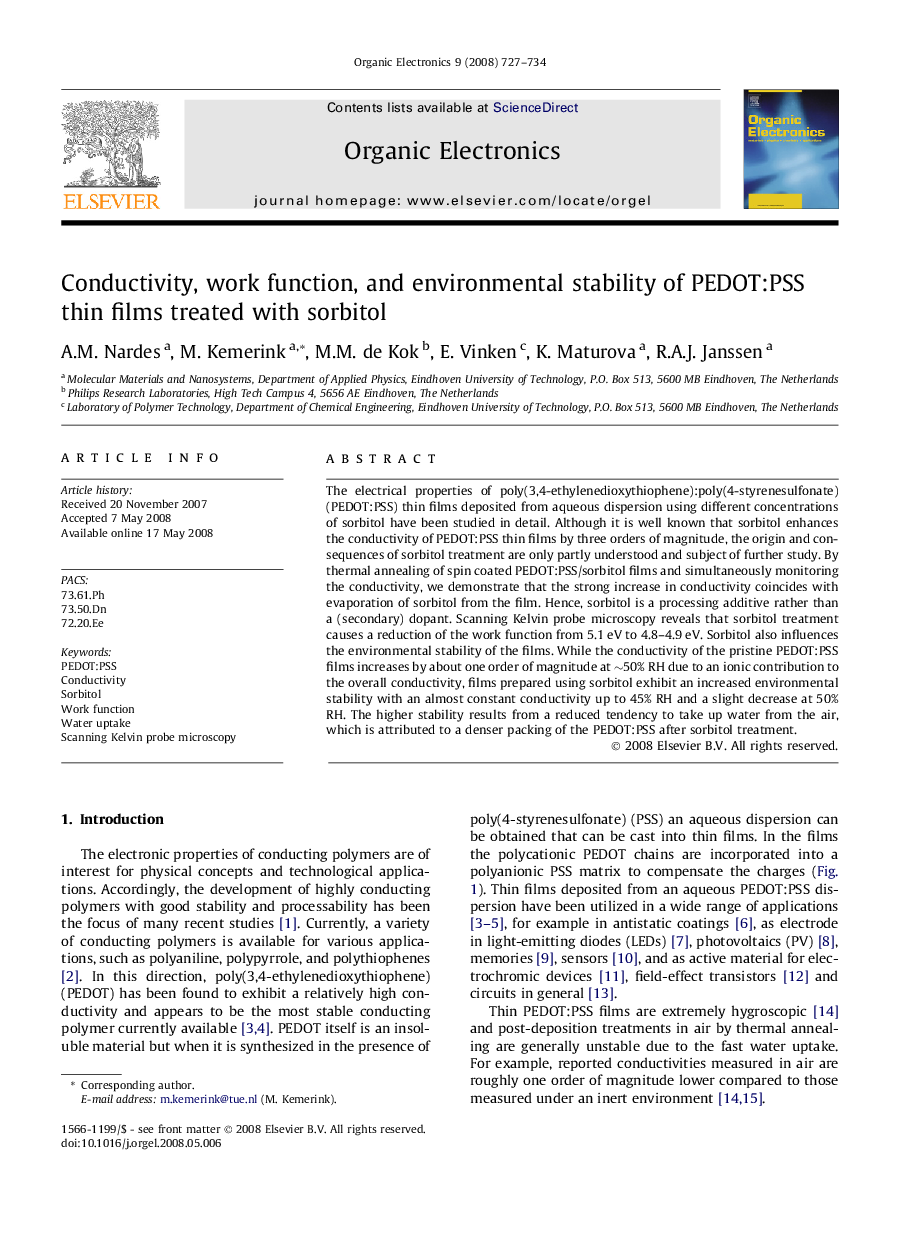| Article ID | Journal | Published Year | Pages | File Type |
|---|---|---|---|---|
| 1265565 | Organic Electronics | 2008 | 8 Pages |
The electrical properties of poly(3,4-ethylenedioxythiophene):poly(4-styrenesulfonate) (PEDOT:PSS) thin films deposited from aqueous dispersion using different concentrations of sorbitol have been studied in detail. Although it is well known that sorbitol enhances the conductivity of PEDOT:PSS thin films by three orders of magnitude, the origin and consequences of sorbitol treatment are only partly understood and subject of further study. By thermal annealing of spin coated PEDOT:PSS/sorbitol films and simultaneously monitoring the conductivity, we demonstrate that the strong increase in conductivity coincides with evaporation of sorbitol from the film. Hence, sorbitol is a processing additive rather than a (secondary) dopant. Scanning Kelvin probe microscopy reveals that sorbitol treatment causes a reduction of the work function from 5.1 eV to 4.8–4.9 eV. Sorbitol also influences the environmental stability of the films. While the conductivity of the pristine PEDOT:PSS films increases by about one order of magnitude at ∼50% RH due to an ionic contribution to the overall conductivity, films prepared using sorbitol exhibit an increased environmental stability with an almost constant conductivity up to 45% RH and a slight decrease at 50% RH. The higher stability results from a reduced tendency to take up water from the air, which is attributed to a denser packing of the PEDOT:PSS after sorbitol treatment.
